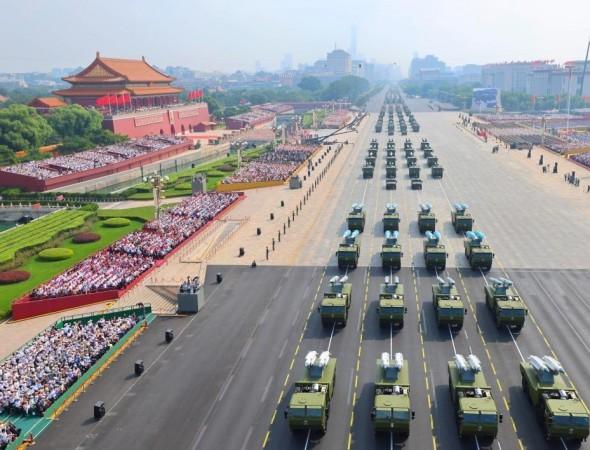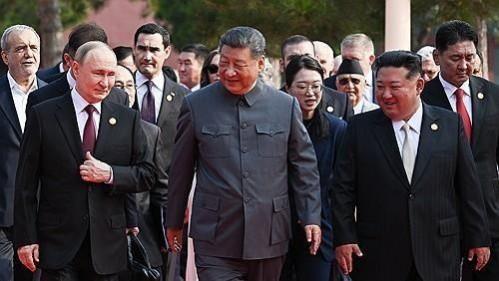
China commemorated the 80th anniversary of its World War II victory with a massive parade in Beijing. Held in Tian'anmen Square, the event showcased China's advanced military technology, including hypersonic missiles and electronic warfare systems. This was only the second such parade since 2015, highlighting China's strategic ambitions on the global stage.
President Xi Jinping, who presided over the event, emphasized the historical significance of the victory, describing it as "China's first complete triumph against foreign aggression in modern times."
Xi's speech underscored the major contributions of the Chinese people to global peace, urging nations to "eliminate the root causes of war" to prevent historical tragedies from recurring. The parade was attended by over two dozen world leaders, including Russian President Vladimir Putin and North Korean leader Kim Jong Un, underscoring China's diplomatic influence. The event featured more than 10,000 military personnel, over 100 aircraft, and hundreds of tanks and armored vehicles, with many weapons showcased publicly for the first time.

Among the weaponry displayed were the HQ-9C missiles, which have been acquired by Pakistan for its defense network. These missiles were reportedly used by the Pakistani Army and were destroyed by India during Operation Sindoor. Additionally, China unveiled a new generation of intercontinental ballistic missiles, including the Dongfeng-61 (DF-61), a nuclear-capable missile that can purportedly cover the entire planet. The parade also featured towering installations resembling the Great Wall, symbolizing Chinese resilience during wartime.

The parade featured more than 10,000 military personnel, over 100 aircraft, and hundreds of tanks and armored vehicles. Among the weaponry displayed were hypersonic missiles, directed-energy systems, electronic warfare equipment, and unmanned intelligence platforms, many of which were showcased publicly for the first time. The inclusion of Chinese peacekeepers who served under the United Nations in the formations reflected China's growing global defense posture. A soldier who had served in the Democratic Republic of the Congo said, "We have the capability to defend the peace forged with the blood of our forefathers."
China's resistance against Japanese aggression, which began in 1931, was the earliest and one of the longest among Allied nations. The country tied down more than half of Japan's overseas forces and suffered 35 million casualties, roughly a third of total global losses in WWII. Representatives from countries that supported China during the war, including the United States, the United Kingdom, France, Russia, and Canada, were also invited to the event. President Xi Jinping emphasized that the People's Liberation Army (PLA) must provide strategic support for China's rejuvenation and modernization, in line with the nation's long-term goal to become a fully modern socialist country by 2035.
"Eighty years ago, we were revived. Eighty years later, we are thriving with even greater vitality," said Lyu Shouye, a graduate student and spectator at the event. The parade was not just a display of military might but also a platform for China to assert its role as a global leader advocating for peace and cooperation. Xi's call for nations to eliminate the root causes of war and prevent historical tragedies from recurring was a central theme of the event. This message of peace was particularly poignant given the current global tensions and the shifting dynamics of international relations.
The event to mark 80 years since Japan's defeat at the end of World War Two was largely shunned by Western leaders, with Putin and Kim – pariahs in the West due to the Ukraine war and Kim's nuclear ambitions – the guests of honor. Helicopters trailing large banners and fighter jets flew in formation during a 70-minute showcase that culminated in the release of 80,000 'peace' birds. At a lavish reception after the parade at the Great Hall of the People, Xi told his guests that humanity must not return to the "law of the jungle." Pyongyang has rejected Seoul's recent overtures to stabilize souring relations between the two Koreas, technically at war since the 1950-53 Korean War ended in a truce, not a peace treaty.














